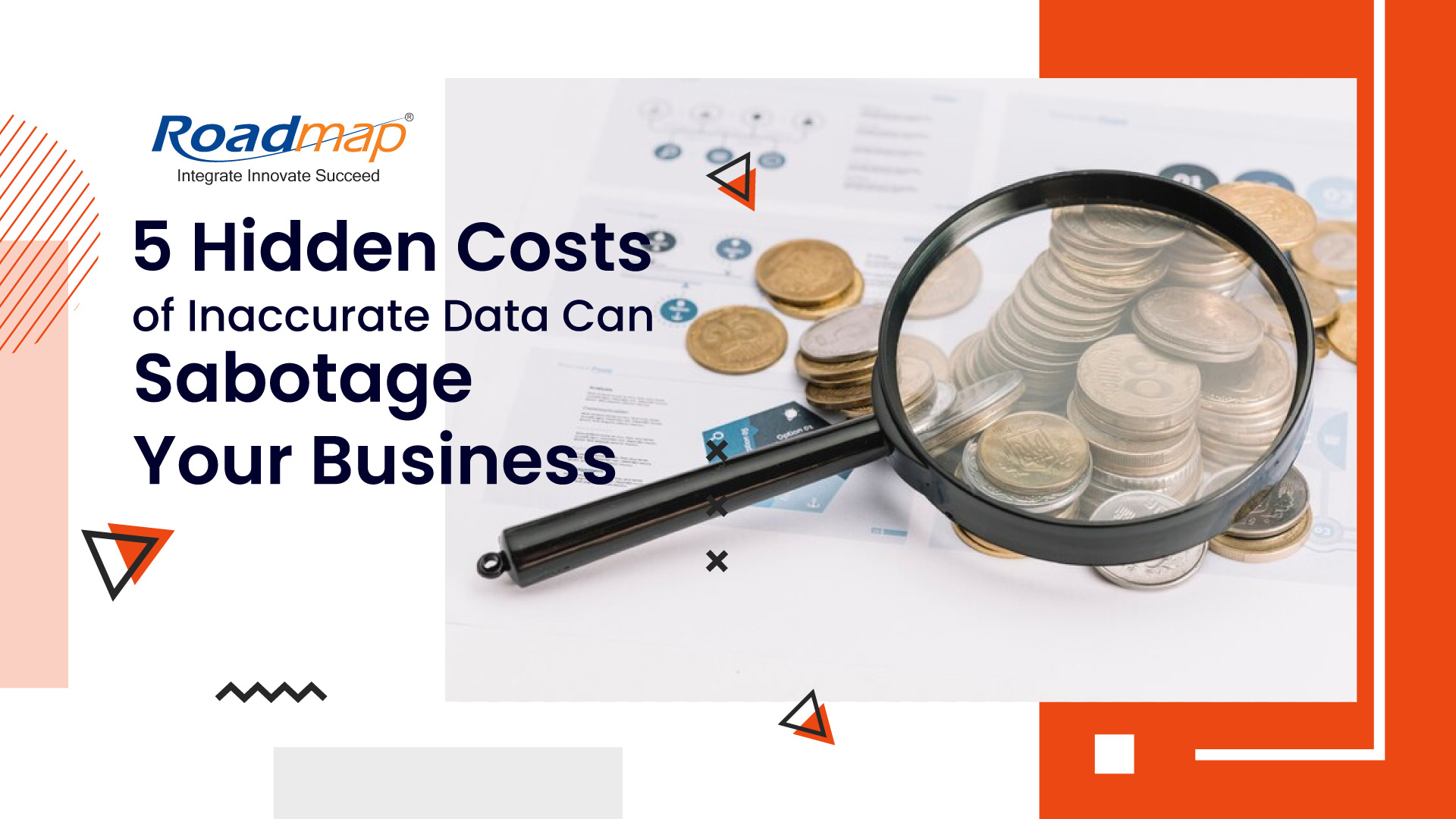
- Roadmap
- 08-Nov-2024 06:30:13
5 Hidden Costs of Inaccurate Data Can Sabotage Your Business
In today’s data-driven world, accurate information is a business's foundational asset. Yet, many companies unknowingly operate on inaccurate or outdated data, leading to costly consequences.
But what exactly is the toll of inaccurate data on a business?
Join us with the blog as we explore real business cases that illustrate how these hidden costs can negatively impact your operations, finances, and reputation.
1. Lost Revenue and Missed Opportunities
Imagine making a strategic decision based on a flawed forecast or outdated customer data. Inaccurate data leads to misinformed choices that cost money. Revenue projections based on faulty metrics could mean spending more on marketing campaigns that miss the mark or stocking up on inventory that doesn’t sell. Every decision based on incorrect data is a missed opportunity for profit.
Example: Consider a retail business using outdated consumer purchase trends to plan its inventory for the holiday season. When those trends turn up incorrect, the business either ends up with excess stock or an under-stocked inventory, losing potential revenue on both fronts.
2. Damaged Customer Relationships and Loss of Trust
When data about your customers is inaccurate, it can cause serious issues in maintaining customer relationships. Imagine customers receiving marketing offers for products they have no interest in or called by the wrong name or being contacted repeatedly about irrelevant issues. This lack of personalization and care erodes trust, and customers may begin to feel that your business doesn’t understand them.
Example: A company using inaccurate contact data may have a chance of ending up emailing a customer who unsubscribed long ago. Repeated unwanted contact can drive customers away and, in some cases, result in fines under data protection regulations.
3. Inefficiency and Increased Operational Costs
Inaccurate data contributes to inefficiency and increases operational costs by wasting valuable resources. Employees spend more time double-checking, correcting, or working around incorrect data, which drags down productivity and efficiency. Instead of focusing on growth-driving tasks, teams become bogged down in error resolution.
Example: Inaccurate inventory data means extra time spent on manual stock counts, slowing down order processing and leading to potential delays. Delays cost money and can sour customer experiences, ultimately impacting the bottom line.
4. Compliance Risks and Legal Ramifications
With increasingly strict data privacy laws worldwide, using inaccurate data can expose a business to legal risks. Compliance depends on accurate record-keeping, especially in regulated industries. Any inaccuracies can lead to non-compliance with regulations like GDPR or CCPA, resulting in hefty fines and damage to a company’s reputation.
Example: Consider a healthcare company relying on outdated or incorrect patient data. Missteps due to inaccurate data can have legal consequences and, in the worst cases, compromise patient safety—leading to lawsuits, fines, and irrevocable brand damage.
5. Misguided Strategies and Poor Decision-Making
Good decisions rely on accurate data. With data inaccuracies, key insights are skewed, and decisions are made based on flawed information. This can lead to misguided business strategies that waste resources and potentially steer the company in the wrong direction. Whether it’s an inaccurate customer demographic or false sales trend data, bad data leads to poor strategy.
Example: A company basing its product development strategy on incomplete market data may end up creating products that don’t meet the market’s current needs, wasting time and money on a misaligned offering.
Conclusion: Inaccurate data can have a devastating effect on any organization, leading to costly errors, delays, and potential non-compliance with regulatory requirements. Real-time data and accuracy are essential for any organization that wants to stay competitive today and remain successful in the future.
Investing in technology like ERP systems is no longer optional, but rather essential for any business to ensure better visibility and control over their data which can identify and resolve any issues quickly before they become a major problem. ERP system also helps organizations aiming to thrive in the digital age and maintain a good reputation in the market.




